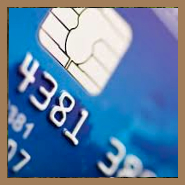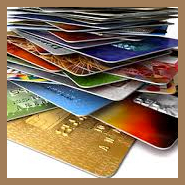 Some people’s experience of credit cards is the equivalent of financial imprisonment. This often follows the view of credit cards being the same as free money.
Some people’s experience of credit cards is the equivalent of financial imprisonment. This often follows the view of credit cards being the same as free money.
It’s easy to get caught in this trap. After all, you probably experienced a school education where you solved complex mathematical problems and studied classic literature, but no classes were offered in personal financial management.
You probably didn’t learn the practicalities of how interest compounds on a credit card, and how the $20 meal can actually end up costing you $40 or more. It’s also never been easier to take that vacation now and pay later – you don’t need to do the boring work of saving beforehand. And everyone else does it, so it doesn’t occur to you to do things any differently.
If this sounds like you, here are some basic tips to get you better acquainted with the reality of credit cards.
1. Don’t carry a balance on your credit card
A credit card balance is one of the highest interest rate loans you can have. Read the fine print of your contract. You could have something like a 60-day interest-free period, so pay off your whole balance before this time period expires. Better still, budget to make sure you can pay it in full each and every month.
2. If you do have a balance, switch to a credit card that offers an interest-free period
Check which banks have the best offers, then switch and make sure you can pay it off before the interest-free period expires. Also, cut up the old card to avoid running up more debt.
3. Limit the cards you have
Why do you need more than one card, really? It’s asking for trouble by making it harder to track your budgeting. Limit yourself to one card, and don’t increase the limit to more than you can comfortably afford to repay.
4. Always pay more than the minimum
If you can’t afford to pay out the whole balance, at least pay more than the minimum. A balance of $1,000 at an interest rate of 18.5% will take over eight years and a total of $1,924 to repay.
5. Rewards cards aren’t necessarily so
There are plenty of frequent flyer and other rewards cards that look like they give you free money. But, really, the interest rate is probably higher and you may have to spend your annual salary on it to see any benefit.
6. Watch the fees
Many credit cards charge annual fees for simply the privilege of having their card in your purse, but you could also be paying fees for late payments, or when you can’t meet the minimum payment. Shop around for a better deal.
7. Stay away from store cards
They can be so tempting because you have more to spend in your favourite store, but this extra source of credit could add up to more than you can comfortably handle.
8. If you can’t trust yourself, get a debit card instead
If you find it all too tempting knowing you have free money in your purse, get rid of the temptation altogether and use only the money you have saved. When you run out, you stop buying. You won’t get into massive debt so easily this way.
A credit card can contribute to your financial freedom rather than financial imprisonment if used the right way. Learn how to make it work for you, otherwise get rid of it before you end up in a financial sinkhole.



